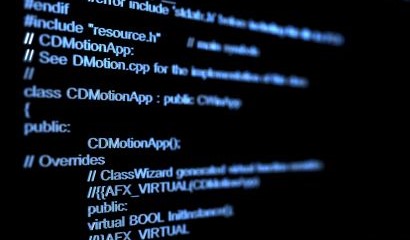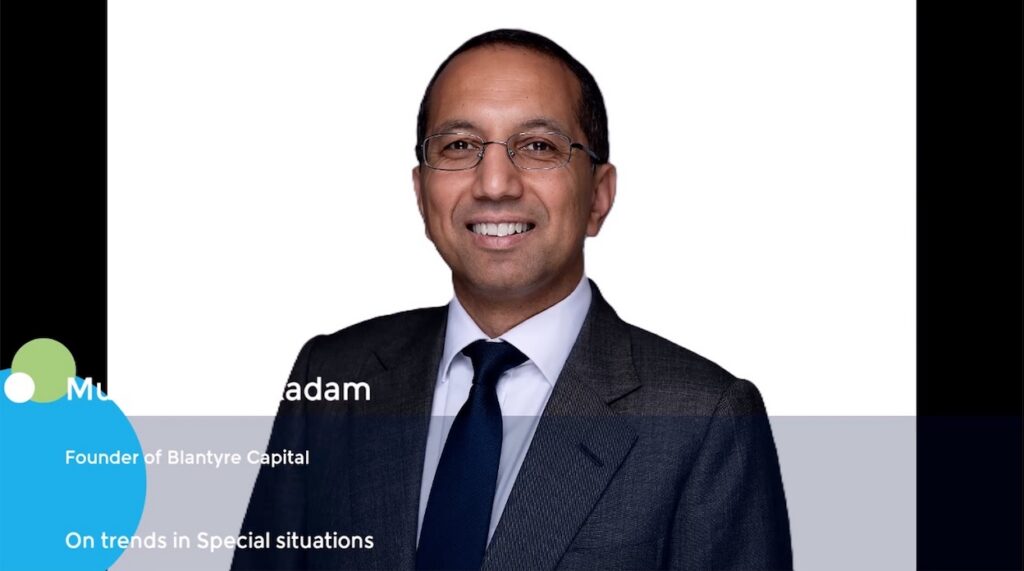Oi cross-border restructurings to test limits of Brazilian bankruptcy law restrictions – Legal Analysis
In the past few weeks, Oi has made public its intention to commence a voluntary Chapter 11 case in the US. Despite the fact that the Brazilian telecom services provider is currently in judicial recovery in Brazil (for the second time in less than 10 years), the company said that a US Chapter 11 case may be necessary to achieve a “holistic” restructuring. In light of that possibility, Debtwire’s legal analyst team takes a closer look at this unprecedented situation, highlighting how certain controversial legal issues regarding Brazilian bankruptcy law provisions for extraconcursal claims and for renewed bankruptcy filings could lead to jurisdictional conflicts, resulting in a dangerous precedent for the country’s credit market.
Background – simultaneous cross-border reorganization proceedings
Oi revealed its intention to commence a Chapter 11 proceeding in recent motions filed with the judges handling both Oi’s (i) Brazilian main insolvency proceeding, in a request for approval of an amended restructuring plan, and (ii) US Chapter 15 recognition case, in a request to terminate the Chapter 15 proceeding commenced to seek recognition of the judicial recovery.
If such expectations materialize, it would be the first time that a Brazilian company would have two simultaneous ongoing main in-court restructurings in two different countries. In the past 15 years, domestic companies have traditionally filed local main insolvency proceedings and sought Chapter 15 recognition in the US, in order to bind international creditors and protect assets abroad.
However, recently certain companies based in Brazil and other Latin American countries have opted to commence voluntary Chapter 11 cases in the US instead of filing for bankruptcy with local courts and later seeking recognition via Chapter 15 cases.
But filing concurrent Chapter 11 and judicial recovery proceedings would be an unprecedented situation that could require the Brazilian court to address certain controversial issues regarding Brazilian law restrictions and, as a consequence, create jurisdictional conflicts.
Circumventing Brazilian law restrictions regarding extraconcursal claims
First and foremost, Brazilian bankruptcy law provides that certain claims not impaired by a local in-court restructuring (the so-called “extraconcursal” claims), must be repaid pursuant to the original terms. According to Oi, the US reorganization proceeding would be used to restructure these sorts of claims, specifically (i) certain executory contracts and leases for property and services that the company no longer uses and (ii) claims guaranteed by fiduciary liens, in the total amount of approximately BRL 18.5bn (USD 3.4bn).
The strategy of using Chapter 11 proceedings to restructure extraconcursal claims itself is not new, and was already successfully adopted by other Brazilian companies – notably, local airlines Azul and Gol Linhas Aereas Inteligentes. In contrast to Oi, however, in those cases the extraconcursal claims stemmed from aircraft and related equipment lease agreements that were not governed by Brazilian law. Additionally, the companies were not under judicial recovery in Brazil and did not file recognition requests with local courts, opting to treat their domestic liabilities as if the US reorganization proceeding did not even exist.
The fact that Oi has an ongoing judicial recovery appears to make a difference when it comes to its discretion to commence an in-court restructuring abroad. A decision recently issued by Judge Monica Maria Costa, of the Rio de Janeiro appellate court, illustrates such restrictions: in an injunction granted in an appeal filed by Oi dissident creditor V.Tal, Judge Costa formally asked the bankruptcy judge handling the Chapter 15 recognition proceedings to abstain from ruling on the case closing request until the Brazilian judge handling Oi’s judicial recovery rules on two critical matters: (i) whether the company is in breach of its judicial reorganization plan; and (ii) whether its proposed plan amendments should be submitted to a vote.
Along with the formal request, Judge Costa also ordered that the US Court should be informed that there is no court authorization in Brazil for Oi to commence debt restructuring proceedings in other jurisdictions.
One could argue, based on the above-mentioned precedents involving the airlines, that such authorization is not mandatory. On the flip side, it may constitute further evidence that Brazilian courts ruling on Oi’s judicial recovery and related appeals do not look favorably on the company’s intentions to commence a Chapter 11 case.
Circumventing Brazilian law restrictions regarding renewed filings
In addition to the extraconcursal-related matters, a Chapter 11 filing could also violate Brazilian law restrictions on companies filing for bankruptcy for the second time. Section 48, II of the bankruptcy law prohibits companies from commencing a judicial recovery within five years from the date on which a first bankruptcy process is granted, which corresponds to the date of the plan sanctioning decision, in line with the wording of Section 58 of the law.
Since the court handling Oi’s judicial recovery sanctioned the plan on 28 May 2024, Oi would not be allowed to commence another in-court restructuring in Brazil for several years. In this scenario, the Chapter 11 filing could be deemed a maneuver to circumvent Brazilian law restrictions on a new local reorganization proceeding.
Along with the jurisdictional conflicts discussed above, Oi dissident creditor V.Tal objected to Oi’s intentions, arguing that a dual-track restructuring in Brazil and the US would compromise domestic creditor protections, cause conflicting rules, procedural incompatibility, and substantial legal uncertainty for the restructuring of the Oi group and for the entire Brazilian insolvency system.
Diebold Nixdorf as precedent for the filing of concurrent Chapter 11 and foreign main proceedings
The reasons for filing in both the US and another jurisdiction can include the desire to finally resolve obligations to creditors in multiple jurisdictions, take advantage of the automatic stay protections and DIP financing that are available in Chapter 11, and to ensure the broad recognition and enforcement of restructuring plans.
In its motion to dismiss the Chapter 15 proceedings, Oi cites a couple of these reasons as motivations for seeking to file a Chapter 11 case in the US. First is the desire to achieve a global resolution of its debt obligations. The company says that it has approximately BRL 1.51bn (USD 275.5m) in postpetition obligations and existing equity obligations that cannot be discharged under Brazilian law but can be discharged under a Chapter 11 plan. It further notes that these obligations cannot be addressed in its currently-filed cases because (i) a Chapter 15 case can only treat property located in the US, and (ii) under Brazilian law Oi is statutorily barred from filing a new judicial recovery proceeding until 28 May 2029. In addition, the company says that it is “experiencing an urgent, significant liquidity crisis,” and in Chapter 11 it would be able to obtain DIP financing to fund its value-maximization efforts and avoid a liquidation.
The filing of Chapter 11 proceedings and concurrent foreign non-ancillary proceedings is not without precedent. Recently, in 2023, cash machine company Diebold Nixdorf Group filed both Chapter 11 proceedings and proceedings overseas. The non-US proceedings were a Dutch Wet Homologatie Onderhands Akkoord (WHOA). After it entered into a restructuring support agreement, Diebold commenced the Chapter 11 and WHOA proceedings on the same day. Both cases involved the same creditors, but the claims against the US entities were addressed in Chapter 11, whereas the claims against the WHOA debtors were dealt with in the WHOA proceedings. Creditors had to vote on both plans and could only vote the same way on each plan. Creditors received recoveries only under the Chapter 11 plan – the WHOA plan did not provide for payments but was used to restructure European liabilities. One of the companies, Diebold Nixdorf Dutch Holding, which was the lead debtor in the WHOA proceedings, also filed Chapter 15 proceedings in which the WHOA proceedings were recognized as a foreign main proceeding.
International court-to-court cooperation could be the solution
If Oi ultimately files for Chapter 11, Brazilian and US courts will need to find a way – together or separately – to deal with the parallel in-court restructuring proceedings. As both countries have already incorporated the UNCITRAL Model Law on cross-border insolvency into their bankruptcy laws, the courts handling the cases – and respective appeals – could use the mechanisms set forth therein to provide more legal certainty and predictability by establishing direct communication and cooperation with the US courts.
Specifically, Section 167-P of the Brazilian law provides that courts should cooperate with foreign authorities and representatives as much as possible. In addition, Section 167-Q provides a list of means by which international cooperation may be implemented in insolvency proceedings, including the implementation of cooperation agreements or protocols to guide the coordination of in-court proceedings, as well as the oversight of the company’s assets and operational activities.
On the Brazilian side, however, international cooperation would need to observe the provision set forth in Section 167-S of the law, pursuant to which any assistance or cooperation measures to be ordered by the court must be compatible with the rules that guide local reorganization proceedings. In practice, this restriction could affect the local court’s ability to recognize and enforce some of the debt restructuring relief that would be sought in Chapter 11, including the restructuring of extraconcursal claims or even a renewed bankruptcy filing, as discussed above.
A dangerous precedent
Whether or not Oi’s cross-border debt restructuring strategy succeeds may also impact the Brazilian bankruptcy regime and lead to unexpected economic consequences, ultimately affecting the credit market as a whole and especially the DIP financing market. Today, players in these markets operate under the premise that claims guaranteed by fiduciary liens cannot be impaired by an in-court restructuring and factor that into their risk assessment and credit pricing.
To the extent these premises become invalid because companies can circumvent them by commencing a voluntary Chapter 11 in the US, credit for distressed companies is likely to become more expensive. Setting such a dangerous precedent for unpredictability and legal uncertainty in a case as large and complex as Oi could ultimately damage the Brazilian economy and insolvency landscape.
Arthur Almeida is a former restructuring attorney. Prior to joining Debtwire as a Legal Analyst, he practiced with Passos & Sticca Advogados Associados, and worked in the legal department of Banco Fibra S.A. Arthur’s experience includes participating in major civil litigation on credit recovery, representing creditors such as banks and financial institutions in high-profile restructurings. He obtained his Master’s in Commercial Law from Universidade de Sao Paulo (at which he is also a researcher in the Insolvency Law Study Group – GEDEC), and his LL.M in Financial and Capital Markets Law from Insper Instituto de Ensino e Pesquisa.
This report should not be relied upon to make investment decisions. Furthermore, this report is not intended and should not be construed as legal advice. ION Analytics does not provide any legal advice, and clients should consult with their own legal counsel for matters requiring legal advice. All information is sourced from either the public domain, ION Analytics data or intelligence, and ION Analytics cannot and does not verify or guarantee the adequacy, accuracy or completeness of any source document. No representation is made that it is current, complete or accurate. The information herein is not intended to be used as a basis for investing and does not constitute an offer to buy or sell any securities or investment strategy. The information herein is for informational purposes only and ION Analytics accepts no liability whatsoever for any direct or consequential loss arising from any use of the information contained herein.















